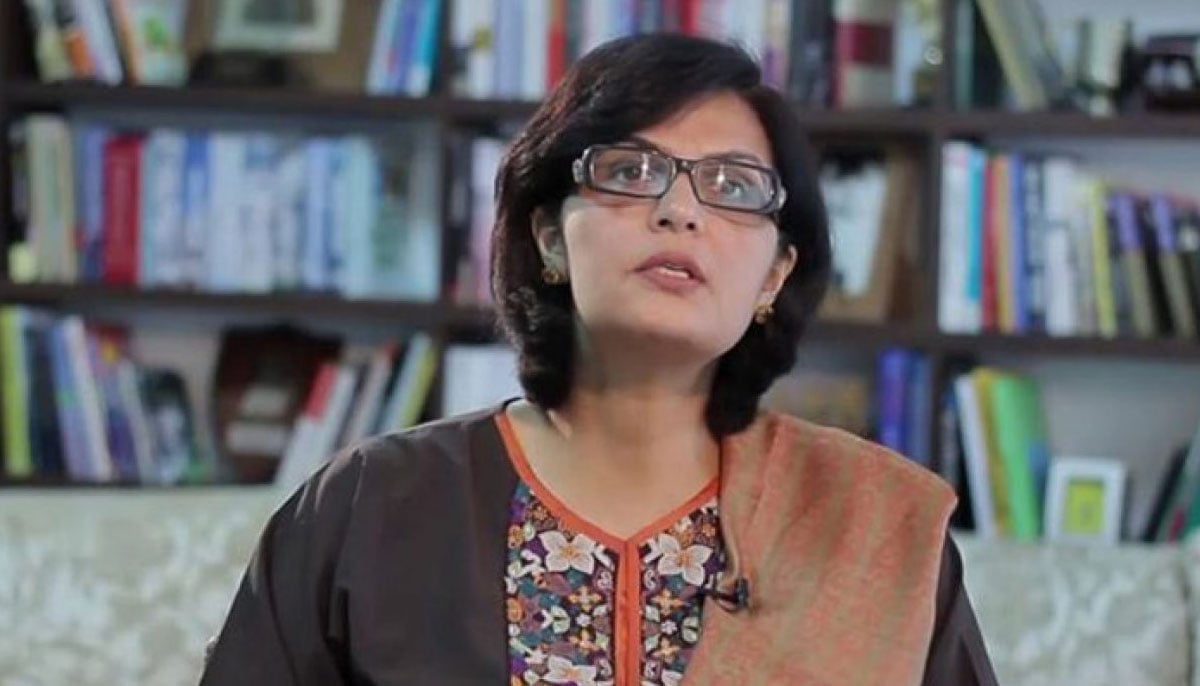‘61pc of Ehsaas Emergency Cash disbursements given to women’
Islamabad: Around 61 per cent of Ehsaas Emergency Cash disbursements were to women, said Special Assistant to Prime Minister Dr. Sania Nishtar as she joined a high-level virtual ministerial roundtable with Ministers from around the world as part of the expert panel to jointly share experiences of several countries in ensuring a gender-inclusive response to the COVID-19 pandemic and recovery measures.
The roundtable discussion was hosted by Phumzle Mlambo Ngcuka, Executive Director of UN Women. The primary goal of the discussion was to foster cross regional knowledge exchange and sharing of best practices to realize progress on SDG 5 in the midst of the COVID 19 pandemic with a specific focus on women’s leadership and participation in the COVID 19 response and gender inclusive packages. Distinguished panellists also identified opportunities for cross-region learning and collaboration.
Dr. Sania Nishtar spoke in the panel on “response and recovery”. She outlined details about Pakistan’s efforts, which have resulted in early disease decline as well as support for poorest families whose lives were adversely affected by COVID 19. She outlined that 61 per cent of Ehsaas Emergency Cash disbursements were to women. More broadly, she said that Ehsaas is addressing women's priorities through the economic response strategy.
Further, elaborating the women focused agenda of Ehsaas, Dr. Nishtar stated, “Foundational to Ehsaas is the realization that it is critically important to ensure that the program is responsive to needs of women in the country, who comprise 49 per cent of total population.
The ambition of Ehsaas is to skew critical initiatives towards women, by ensuring that at least 50 per cent of all beneficiaries targeted by the program across initiatives are women. Therefore, Ehsaas encompasses several social protection and poverty alleviation initiatives targeted towards women, across a plethora of initiatives including interest free loans (50 per cent women), income program (60 per cent women), undergraduate scholarships (50 per cent), Kafaalat (7 million women).
Also, Insaf Card covers health conditions for women, preferentially. In addition, labour force policies are being prepared by Ehsaas Labour Expert Group for women domestic workers, and rural women whose work is seen as an extension of their household responsibilities.
Likewise, the second chance program for girls, and conditional cash transfers for primary education of children, 50 per cent of them will also impact welfare of women, thus, opening the doors to rights and opportunities.”
Drawing on the experience and useful lessons from Ehsaas Emergency Cash program, Dr. Nishtar said, “Pakistan is the fifth largest country in the world, there are 24 million breadwinners who rely on daily wages or are self-employed in the informal economy and life for them virtually came to a standstill with implementation of a lockdown in March.
To respond to this challenge, the Government of Pakistan created the Ehsaas Emergency Cash programme, which is the largest social protection program ever in the country’s history.
It was rolled-out within 10 days of the lockdown to deliver one-time emergency cash grants. US $1.23 billion were allocated to support more than 16.9 million families which cover around 109 million people, this is approximately 50% of the country’s population.”
-
 Maxwell Seeks To Block Further Release Of Epstein Files, Calls Law ‘unconstitutional’
Maxwell Seeks To Block Further Release Of Epstein Files, Calls Law ‘unconstitutional’ -
 Prince William Issues 'ultimatum' To Queen Camilla As Monarchy Is In 'delicate Phase'
Prince William Issues 'ultimatum' To Queen Camilla As Monarchy Is In 'delicate Phase' -
 Winter Olympics 2026: Remembering The Most Unforgettable, Heartwarming Stories
Winter Olympics 2026: Remembering The Most Unforgettable, Heartwarming Stories -
 King Charles Hands All Of Andrew Mountbatten-Windsor’s Records And Files To Police: Report
King Charles Hands All Of Andrew Mountbatten-Windsor’s Records And Files To Police: Report -
 Eric Dane's Family Shares Heartbreaking Statement After His Death
Eric Dane's Family Shares Heartbreaking Statement After His Death -
 Samsung Brings Perplexity AI To Galaxy S26 With ‘Hey Plex’ Voice Command
Samsung Brings Perplexity AI To Galaxy S26 With ‘Hey Plex’ Voice Command -
 Fergie’s Spent £13,000 A Day Since Andrew’s Troubles Started: Here’s Where She Fled
Fergie’s Spent £13,000 A Day Since Andrew’s Troubles Started: Here’s Where She Fled -
 Eric Dane's Death Becomes Symbol Of ALS Awareness
Eric Dane's Death Becomes Symbol Of ALS Awareness -
 Michael B. Jordan Gives Credit To 'All My Children' For Shaping His Career: 'That Was My Education'
Michael B. Jordan Gives Credit To 'All My Children' For Shaping His Career: 'That Was My Education' -
 Sun Appears Spotless For First Time In Four Years, Scientists Report
Sun Appears Spotless For First Time In Four Years, Scientists Report -
 Bella Hadid Opens Up About 'invisible Illness'
Bella Hadid Opens Up About 'invisible Illness' -
 Lawyer Of Epstein Victims Speaks Out Directly To King Charles, Prince William, Kate Middleton
Lawyer Of Epstein Victims Speaks Out Directly To King Charles, Prince William, Kate Middleton -
 Microsoft CEO Shares How Gates Doubted $1bn OpenAI Investment
Microsoft CEO Shares How Gates Doubted $1bn OpenAI Investment -
 Milo Ventimiglia Calls Fatherhood 'pretty Wild Experience' As He Expects Second Baby With Wife Jarah Mariano
Milo Ventimiglia Calls Fatherhood 'pretty Wild Experience' As He Expects Second Baby With Wife Jarah Mariano -
 Chinese Scientists Unveil Advanced AI Model To Support Deep-space Exploration
Chinese Scientists Unveil Advanced AI Model To Support Deep-space Exploration -
 Anthropic’s New AI Tool Wipes Billions Off Cybersecurity Stocks
Anthropic’s New AI Tool Wipes Billions Off Cybersecurity Stocks




